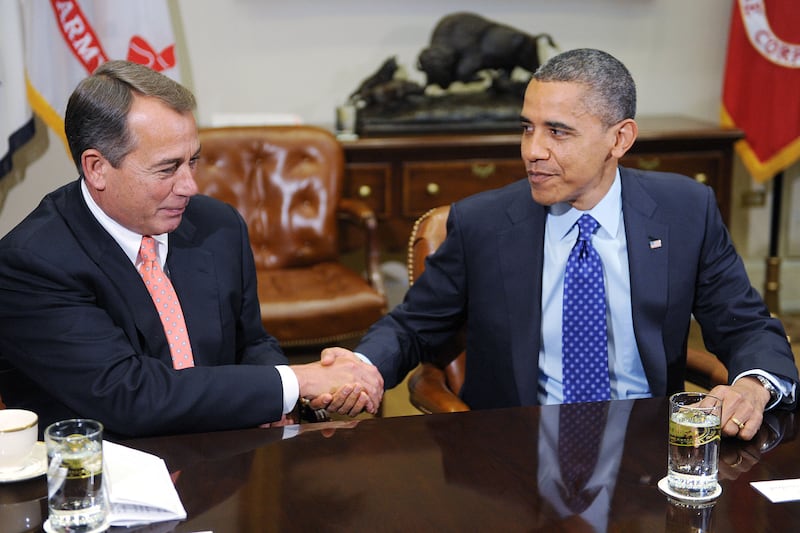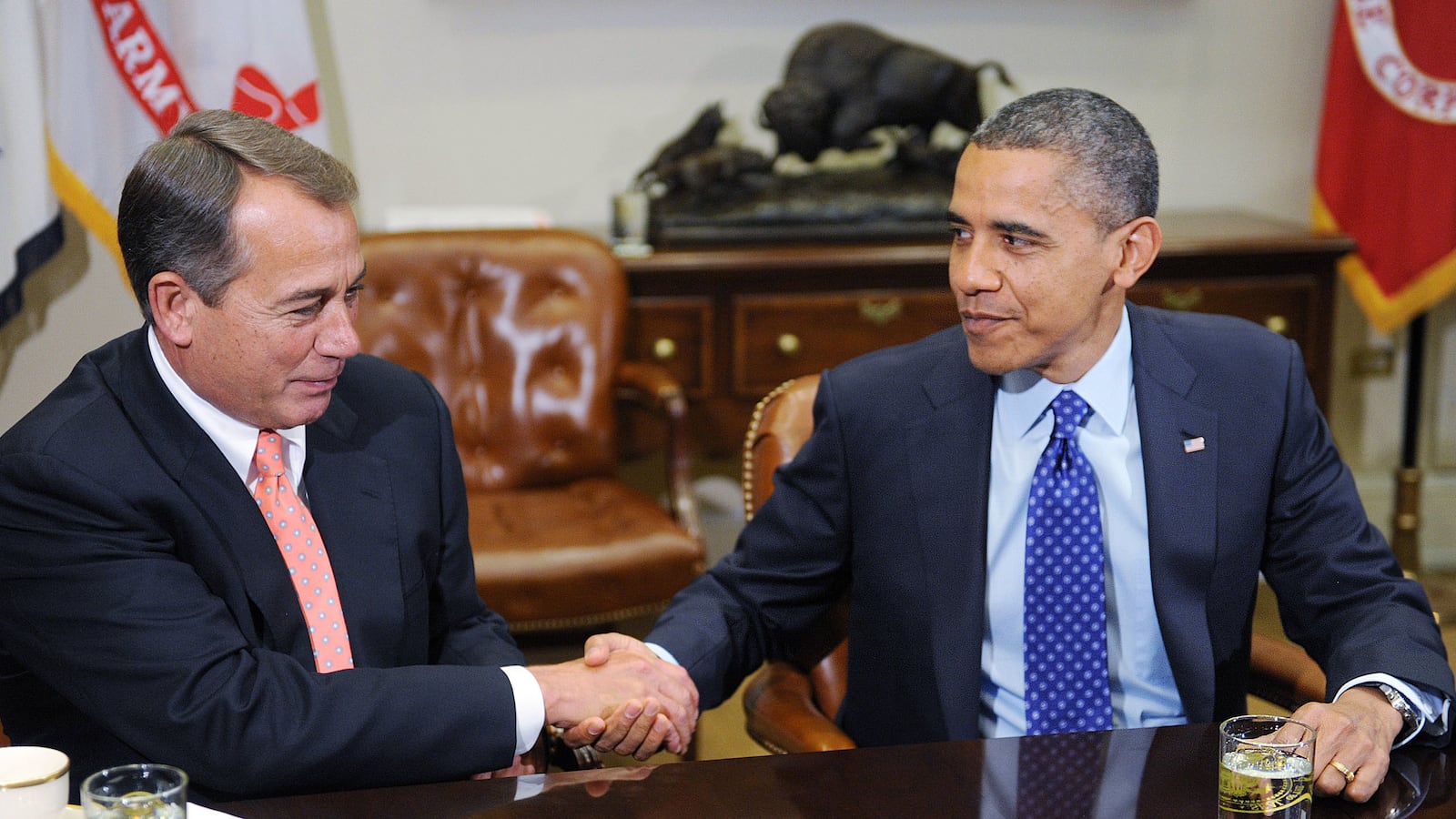There’s a long history of enmity. As the world watches and urges rational talks, the two parties dig in and make maximalist, incendiary statements. Rather than embrace the future, the two sides endlessly litigate the past. Engaged in permanent political campaigns, the leaders play to their bases, threatening unilateral action. The press is fixated on real and imagined snubs. The two protagonists are unwilling to shake hands in public. Each questions the legitimacy of the other to lead, to exist. And each side is riven by sharp internal divisions that make a deal difficult. There are real questions as to whether the two parties can ever coexist side by side in the same narrow turf.
I’m talking, of course, about the fiscal cliff negotiations between the Democrats and the Republicans.
I spent days 33 and 34 of the Fiscal Cliff Hostage Situation in Israel, attending the Israel Business Conference, an annual gathering on business and economics put on by Globes, Israel’s equivalent of the Financial Times. My main responsibility was to moderate a panel on the near-term future of the U.S. economy.
Sitting in a region where missiles were falling a few weeks ago, you quickly realize how absurd it is to make martial analogies to the battle over tax rates. We’re talking about the difference between the government taking a few pennies of every marginal dollar, not life and death. And it makes the pettiness and obstinacy on display in the U.S. over these negotiations all the more unseemly. On Sunday, President Obama and House Speaker John Boehner, who should be negotiating openly and in public, met clandestinely at the White House.
And yet there are some superficial similarities that help describe why it has been so difficult to get a deal done. The view of American politics from abroad is that there’s a broad consensus. Yes, Democrats and Republicans have clashed for decades over important issues. But the disagreement generally takes place within a narrow band of the ideological spectrum. Despite the continual cries of Republicans, there is no real history of socialism in the U.S. And despite the squawks of progressives, far-right movements have never been a force to reckon with on these shores.

But the recent stalemates over budget and tax issues have highlighted an important similarity between the U.S. and the Middle East. It has become apparent—and this is something the professional deficit hawks and Sunday-morning chin strokers simply refuse to grasp—that when it comes to fiscal policy, each side regards the other as an existential threat. Not to their physical well-being, but to their most deeply held beliefs and most cherished political accomplishments.
The Democrats and Republicans aren’t arguing over a return of land. But they are arguing over a return of hard-gained political turf. For the Democrats, the terrain is entitlements—Social Security, Medicare, and now Obamacare. The Republicans are insisting, as the price of a deal, that the Democrats partially withdrawal from the “land” that FDR, Lyndon B. Johnson, and President Obama gained. For the Republicans, the holy land is the Bush tax cuts. The legislation lowering the tax rates on income, capital gains, dividends, and estates was the result of a long, long campaign on the part of Republicans. And now Democrats are essentially demanding that Republicans withdraw from this turf. Given this framing, it’s easy to understand why there is an impasse.
There’s a second component of the analogy that holds true. In the Middle East, as in U.S. fiscal battles, much is made in the of the great-man theory—it’s Ronald Reagan and Tip O’Neill making a deal on Social Security, or Menachem Begin and Anwar Sadat sealing a deal in the 1970s. There’s a sense among many observers that a simple handshake deal between two savvy operators in a room is all that’s needed. But that isn’t what is going on here. We are dealing with elected officials, not dictators. And while they may possess mandates, they do not have a free hand. The negotiators simply lack the ability to sell a deal to their own base. If Boehner makes a deal with Obama to raise marginal tax rates in exchange for some give on entitlements, there’s no guarantee that Republicans and Democrats in the House will vote for it.
There is, of course, one very important difference between the fiscal-cliff stalemate and the Israel-Palestine stalemate. The price of inaction is much lower in the former than the latter. If the two sides fail to come to terms in Washington, the worst that happens in the U.S. is that we get a smaller deficit, a more rational tax system, and needed and likely necessary cuts in a bloated defense budget. Life will go on.
On Sunday a wise old hand who had seen it all expresses a sense of exasperation about the impasse in the Middle East. But the sentiments are easily translatable, from Hebrew to English, and from the Middle East to budgets. “About the past, my God, there are so many accusations and blames and mistakes,” said Shimon Peres. “Since you cannot change the past, leave it. Say go ahead from now we will deal with the future.” And those expecting a grand summit to produce a “Kumbaya” moment and results pleasing to everyone should lower their expectations. “You cannot have negotiations with a happy beginning and a happy ending,” said Peres. “This is not Hollywood.”






